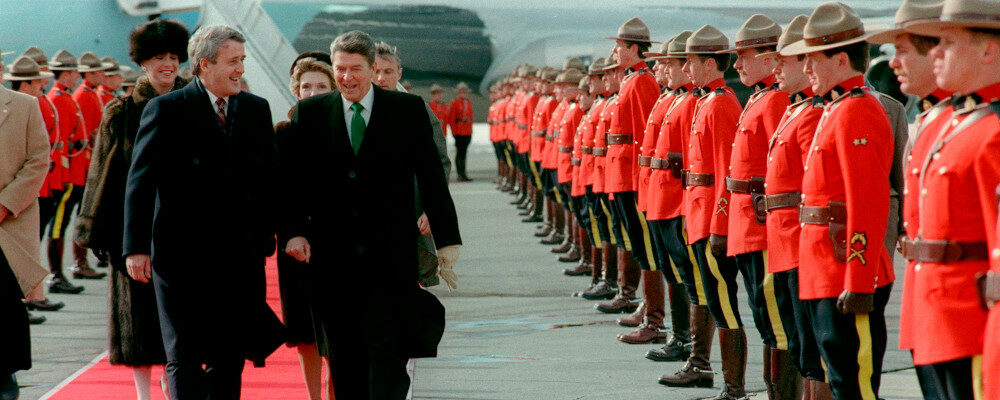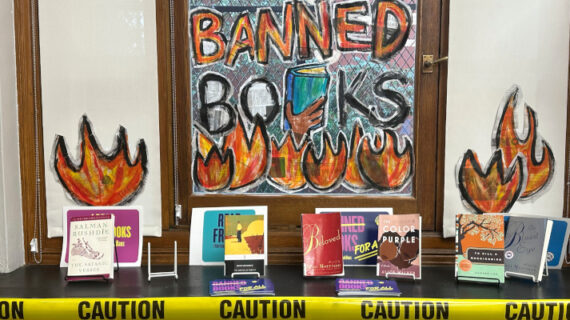A presidential visit is always an opportune time to revisit the colourful history between Canadian prime ministers and American presidents. There is no shortage of moments that illustrate both the intimacy and clash between those who occupy the respective offices. As Joe Biden addresses Parliament today—only the second president to do so in the past 28 years—a look at the most important relationship in this country’s foreign affairs elicits some of the insight and entertainment that only history can provide.
In terms of closeness, few admired Canada as much as Bill Clinton. “We are deeply indebted to your culture,” the president began in his 1995 address to Parliament. “Our daughter’s name was inspired by Canadian songwriter Joni Mitchell’s wonderful song, ‘Chelsea Morning’.’’ In the same speech he called Oscar Peterson “the greatest jazz pianist of our time.” He and Jean Chrétien enjoyed each other’s company and golfed together several times, including one occasion where the final holes were lit by the lights of security vehicles.
Clinton and Chrétien were not the only golfing buddies. Louis St. Laurent and Dwight Eisenhower made headlines in 1956 when they played a round at Augusta National, home of The Masters. The prime minister, who rarely shot better than a hundred for 18 holes, found that the benefits of the sport went beyond light exercise.
“I found… that a game of golf with one of those electric go-carts was about the best way to have an international conference,” St. Laurent said later in the House of Commons, “because you are getting off the go-cart quite frequently for only a couple of minutes but for time enough to reflect on what has been said up to that moment and… what is going to be said when you get back on…”
Eisenhower called Canada “a leader among nations” and its people “valorous champions of freedom for mankind.”
An interesting sidelight to many presidential visits to Ottawa is the issue of security. That may not come as a surprise today. But one dramatic point of comparison is the security in place for Ronald Reagan’s 1981 visit and Barack Obama’s in 2009. At one point during Reagan’s visit, he and Pierre Trudeau addressed a crowd of several hundred on Parliament Hill. The CBC news report noted the crowd was “within yards” of the president. Both leaders spoke to the gathering in open air with very little standing between them and the protestors, raising concerns for the Americans.
The world had changed when Obama visited Stephen Harper. No one was allowed on Parliament Hill, and the very same location where Reagan and Trudeau stood in 1981 was sealed off in bulletproof glass behind which Obama and Harper made a perfunctory wave to distant crowds on Wellington Street eager to catch a glimpse of the new POTUS.
Even before Reagan or Obama visited it was apparent that security was a preoccupation for the Americans. In a proposed 1980 trip to Ottawa by Jimmy Carter that never materialized, concerns were raised about the kitchen knives at 24 Sussex Drive. They were too close to the dining room, according to the Secret Service. The risk proposed by the knives, however, was never tested as the Iran hostage crisis nixed the trip.

Bill Clinton’s words at the end of the 20th century were rosy and reflective of good times between president and prime minister. This was not the case in 1972 when Richard Nixon came to the capital:
Through the years, our speeches on such occasions have often centred on the decades of unbroken friendship that we have enjoyed and our 4,000 miles of unfortified boundary,” he began. “In focusing on our peaceful borders and our peaceful history, they have tended to gloss over the fact that there are real problems between us. They have tended to create the false impression that our countries are essentially alike.
And:
It is time for Canadians and Americans to move beyond the sentimental rhetoric of the past. It is time for us to recognize:
—that we have very separate identities;
—that we have significant differences; and
—that nobody’s interests are furthered when these realities are obscured.
The speech was a douse of cold water on the special relationship. In retrospect, this was not surprising. Taped conversations of Nixon later revealed that he referred to Pierre Trudeau as “that asshole.” The prime minister’s response? “I have been called worse things by better people.”
Trudeau’s son is now the prime minister while the president is old enough to be his father—the PM had not even celebrated his first birthday when Joe Biden was elected to the United States Senate in 1972. Whether Biden makes any rhetorical flourishes today that stand the test of time remains to be seen. Here is one that has, from John F. Kennedy, in 1961:
“Geography has made us neighbours. History has made us friends. Economics has made us partners. And necessity has made us allies. Those whom nature hath so joined together, let no man put asunder. What unites us is far greater than what divides us.”




